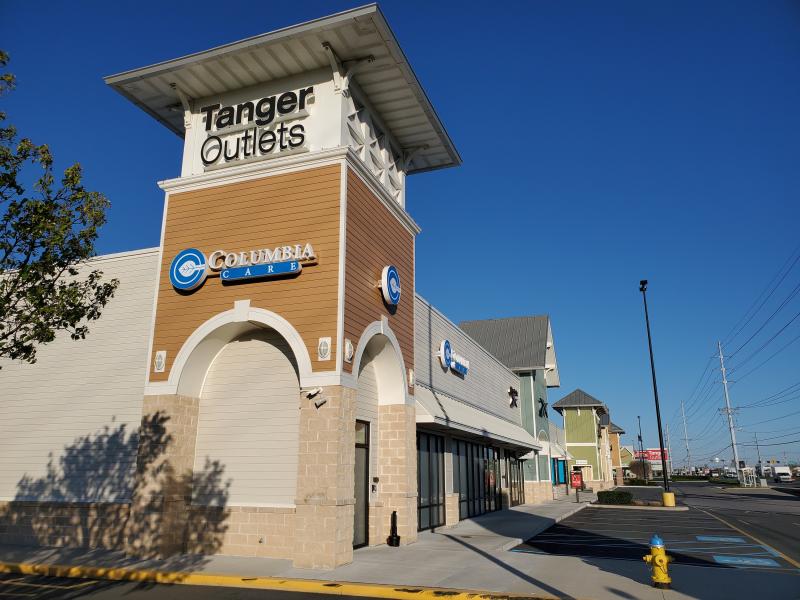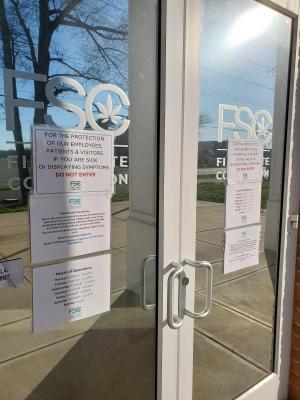Many medical marijuana users have conditions that put them at high risk for COVID-19. Because of that, First State Compassion Center and Columbia Care officials say they have adjusted procedures for picking up medicine. Both companies also say the supply of medicine in Delaware is stable.
George DeNardo, Columbia Care vice president of Mid-Atlantic operations, said the company is following Centers for Disease Control and Prevention guidelines to keep its three locations extremely clean. The health of patients and staff is of the utmost importance, he said.
Columbia Care opened its third dispensary in Delaware, and its first in Sussex County, in October in the Tanger Outlets Bayside, off Route 1 in Rehoboth Beach. DeNardo said the company has instituted express ordering and curbside pickup for patients.
Mark Lally, First State Compassion Center chief executive officer, said his dispensaries are also following CDC guidelines, and the company converted to online ordering in eight days. He said First State had already been working on the transition, but the pandemic expedited its launch. First State opened Delaware’s first licensed dispensary in Wilmington in 2015, and then the first in Sussex County, outside Lewes, in 2017.
Lally said patient response to the changes has been largely positive.
“Our new protocols answered their questions, and they were very appreciative,” he said.
Stacey Hofmann, Department of Public Health spokesperson, said the state’s Office of Medical Marijuana had conversations with each vendor to discuss the ability to remain open during the crisis. A third company, Fresh Cannabis, has a location in Newark.
All three vendors were eager to comply with social distancing, enhanced cleaning protocols and using personal protective equipment to protect themselves and patients from transmission, she said.
Related to supply, Lally said First State has put some purchase limits in place to ensure everyone has access to the medicine they need.
DeNardo said Columbia Care has not instituted the same purchase limits because the company recently tripled its growing operation in Delaware.
Both DeNardo and Lally said they were pleased the state’s medical marijuana dispensaries were deemed essential under Gov. John Carney’s executive order.
They weren’t the only ones. Zoë Patchell, Delaware Cannabis Advocacy Network executive director, said the organization is thankful dispensaries have been recognized as the essential medical service that they are. However, she said, the crisis exacerbates inadequacies and deficiencies.
Patchell said the majority of registered medical cannabis patients meet the criteria for the most vulnerable demographic, which is why she called for emergency regulations allowing home delivery until the pandemic is over. Officials have responded by updating the policy, and Delaware now allows home delivery.
Patchell is also critical of placing limits on purchases because it forces the patient to buy cannabis at a nondiscounted price and could increase the patient’s potential for exposure.
“These problems could be eliminated by licensing more providers, as well as allowing patients to home cultivate,” said Patchell.
In a world of uncertainty, one thing is for sure, marijuana continues to gain acceptance as a medicine in Delaware.
Hofmann provided information showing as of March 30, there were 9,399 patients across the state, more than six times as many as the 1,405 patients in June 2016. Currently, records show 4,790 in New Castle County; 1,603 in Kent County; and 3,006 in Sussex County.
DeNardo said he expects the number of patients to continue to rise. Over the years, he said, Delaware legislators have modified the rules, opening up additional pathways for prescription.
Editor’s note: This story has been updated to reflect that home delivery is now available for medical marijuana patients, a change from April 6, when the story was originally published.
Chris Flood has been working for the Cape Gazette since early 2014. He currently covers Rehoboth Beach and Henlopen Acres, but has also covered Dewey Beach and the state government. He covers environmental stories, business stories, random stories on subjects he finds interesting and has a column called ‘Choppin’ Wood’ that runs every other week. Additionally, Chris moonlights as the company’s circulation manager, which primarily means fixing boxes during daylight hours that are jammed with coins, but sometimes means delivering papers in the middle of the night. He’s a graduate of the University of Maine and the Landing School of Boat Building & Design.























































